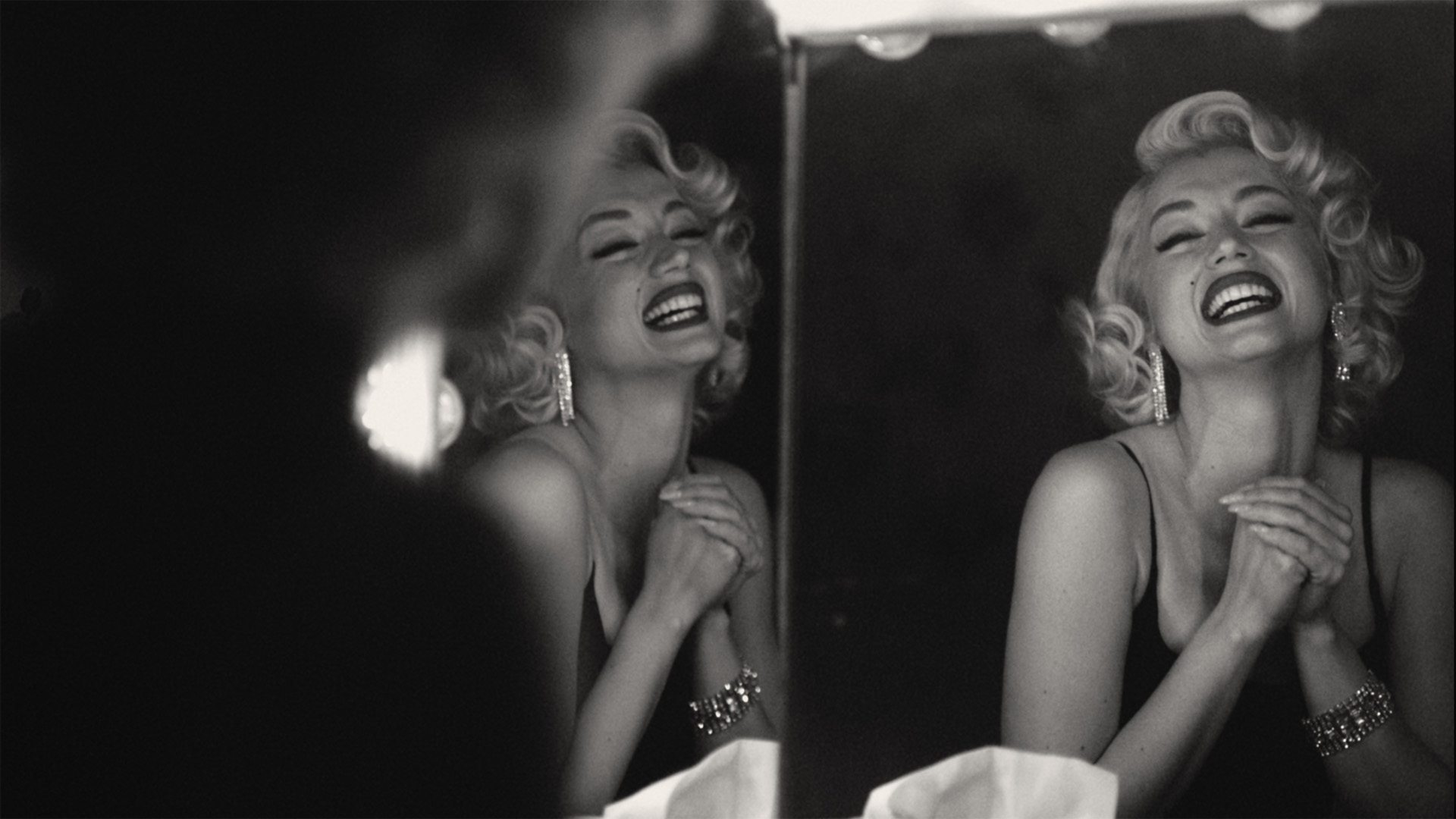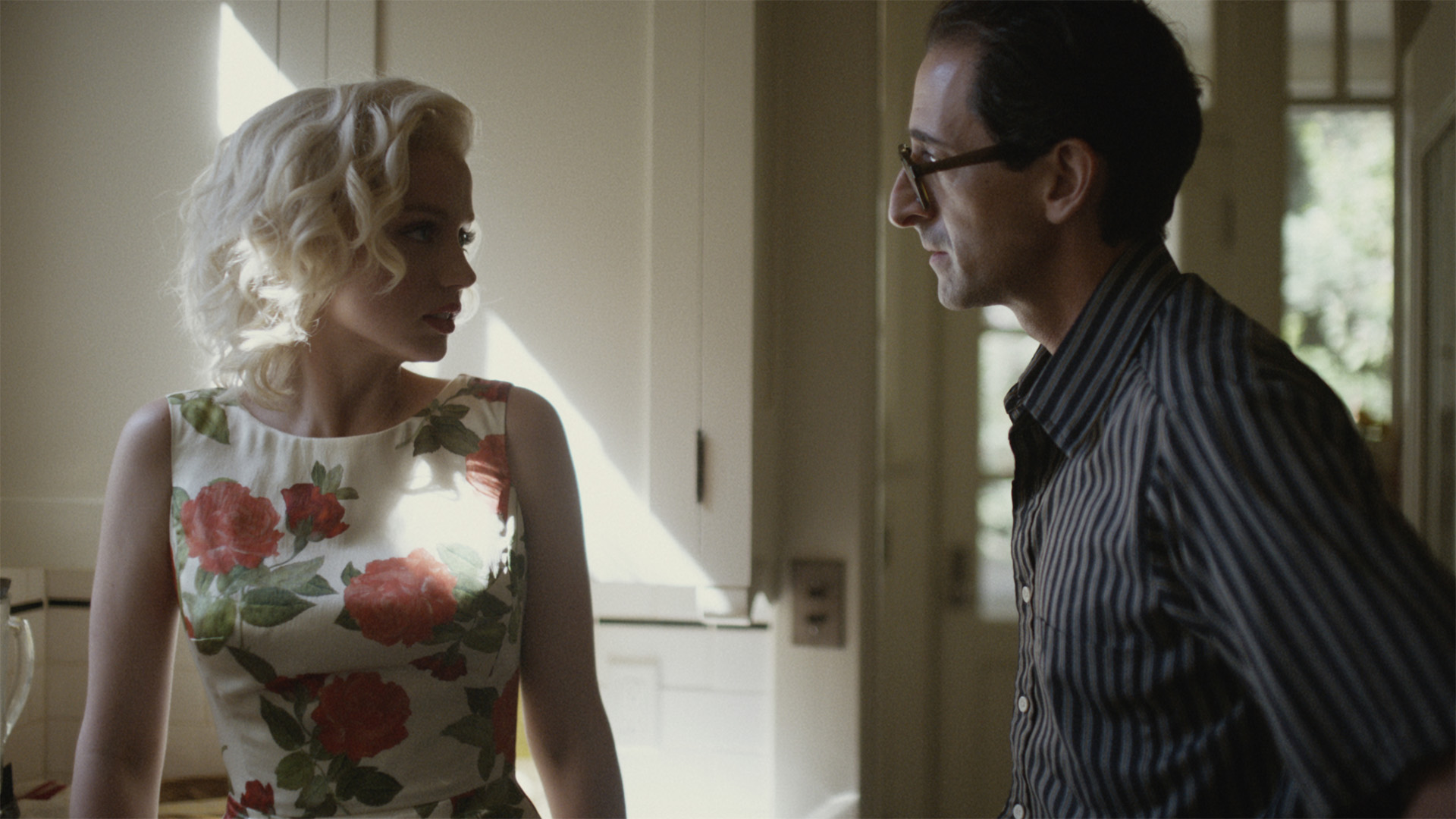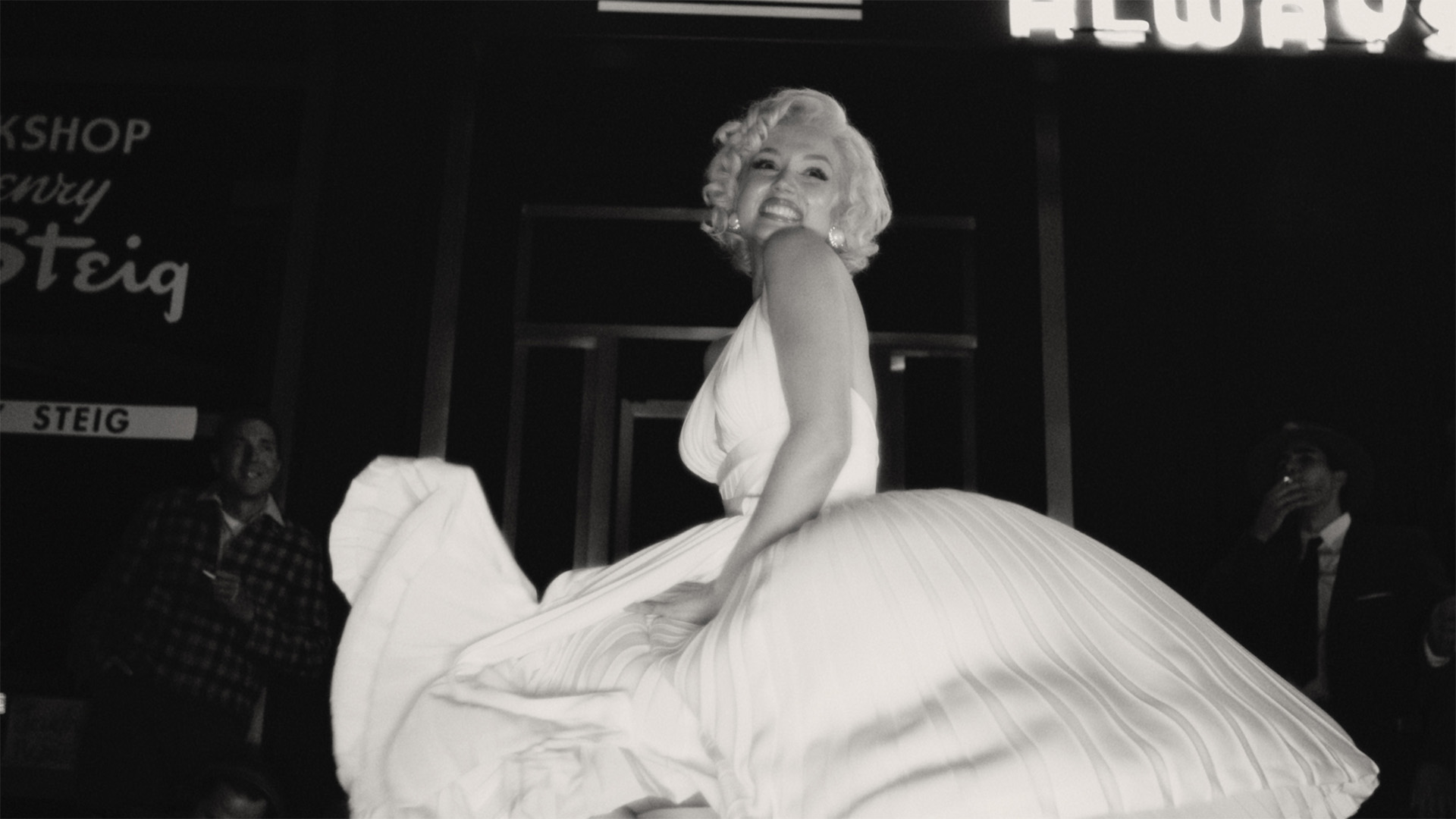TechRadar Verdict
Blonde takes plenty of liberties with history and is far from an easy watch, but Andrew Dominik’s artfully made biopic reminds you why Marilyn Monroe is still being talked about 60 years after her death. Expect the brilliant Ana de Armas to feature heavily in movie award conversations come the new year.
Pros
- +
A spectacular central performance from Ana de Armas
- +
Smartly directed by Dominik, with plenty of neat visual tricks
- +
Far more inventive than your average biopic
Cons
- -
An over-simplistic portrayal of Marilyn and her demons
- -
At times unrelentingly bleak
- -
At close to three hours long, it could be shorter
- -
Not all of it is true
Why you can trust TechRadar
- Available now on Netflix
- A fictionalised retelling of the life of Marilyn Monroe
- Based on Joyce Carole Oates’ novel of the same name
- Written and directed by Andrew Dominik, of Chopper and The Assassination of Jesse James by the Coward Robert Ford fame
- Knives Out and No Time to Die’s Ana de Armas stars as Marilyn Monroe
There’s a certain irony that Netflix, one of the most significant disruptors in movie history, should bankroll a film so steeped in Hollywood legend. Marilyn Monroe’s all-too-brief life may have been over by the time Sean Connery first introduced himself as “Bond, James Bond”, or the Beatles released their debut single, but she remains one of pop culture’s greatest icons, arguably more famous than any of the films she appeared in.
For more than half a century, Marilyn has transcended traditional notions of celebrity, a star who – like fellow 2022 biopic subject Elvis Presley – is recognizable simply from her first name. She’s a contradiction, a person both instantly recognisable and impossible to truly know – even though her public and private personas were, to most of the world inseparable. We’re talking levels of fame where the basics of the protagonist’s life-story are so ubiquitous that the standard “person does x, person does y” biopic narratives become mundane. This is also the reason why Blonde’s wilful blurring of the lines between fact and fiction makes it a better movie.
Interestingly, writer/director Andrew Dominik (who has previous biopic form with the brilliant Chopper (2000) didn’t turn to the usual reference books to tell Marilyn’s story. Instead, he adapted Joyce Carol Oates’ 2000 novel Blonde, a fictionalized account of the star’s lifetime in the Hollywood spotlight. This is Hollywood history as an auteur’s vision, not quite an alternative-universe take in the vein of Quentin Tarantino’s Once Upon a Time in Hollywood, but a story willing to move people and places around in the name of advancing the narrative. It’s as much the story of an icon as the story of a human being, and throughout its close-to-three-hour runtime, Blonde makes the distinction between Marilyn Monroe and the actual Norma Jeane Baker, as if the former is a tragic superhero alter-ego.

Bending the truth
Crucially, this more fictionalized route gives Dominik the freedom to build Marilyn’s life story around a functional narrative framework – how often have you wound up frustrated by the last act of a biopic saddled with a lackluster ending because real life rarely works with Hollywood screenplays in mind? As a result, Blonde is far from a nuts-and-bolts, childhood-to-death retelling of the actor’s 36 years on Earth. Dominik is less interested in the whats, whens and hows of Marilyn’s life than creating a mood, and he uses every trick in the filmmaker’s arsenal to transport us into the late star’s headspace.
Aspect ratios segue from claustrophobic pillarboxing to glorious, full-on anamorphic widescreen, while the photography frequently shifts from full colour to wonderfully arty black-and-white to reflect the mood on screen. At one point the face of Adrien Brody (who plays Marilyn’s third husband, Arthur Miller) is blurred as if he was an unwitting participant in a police video. Meanwhile, one particularly trippy sex scene warps the imagery with all the zeal of ’80s music video director trying out new VFX tools for the first time.

A movie for today
But like most historical films, Blonde says more about the time it’s made than the time it’s set. As much as it relishes the opportunity to recreate the superficial glamor of 1950s Hollywood, the movie is rather more interested in exploring La La Land’s darker edges. As a result, Blonde – which became Netflix’s first NC-17-rated movie in the US – is often an uncomfortable watch.
Viewed through the lens of the #metoo era, Marilyn’s story becomes an unrelenting tragedy, one in which a male-dominated world treats her as nothing more than a commodity. Despite being one of the biggest stars on the planet, she has little agency over her career or her body, forced by the studio system to work for comparative peanuts, and to put securing next role ahead of her desire to have a family. Whether by Hollywood executives, her husbands or the US president, she’s regarded as an object for male gratification, and on the rare occasions she speaks out, she’s made to feel she stepped out of line. It’s often so painful to watch that you find yourself hoping the real Marilyn’s life wasn’t quite so sad and tragic.
If Dominik brings impressive technical prowess to the storytelling, the heart comes from Ana de Armas as Marilyn. While the likes of Blade Runner 2049, Knives Out and No Time To Die had already marked her out as an actor to watch, Blonde is the film that catapults her into serious award contention. Appearing in almost every scene pf the movie, de Armas is utterly captivating, whether portraying the movie star’s intense personal sadness (scenes Dominik has a habit of showing in close-up), or flawlessly recreating classic Marilyn scenes from Some Like it Hot or The Seven Year Itch. On one level it’s an uncanny impersonation – there are times you have to ask yourself whether you’re watching de Armas or Monroe – but there’s more to it than that. She entirely disappears into a role that – despite being a quasi-fictional construct – feels remarkably real.

In fact, there are times when the characterisation can’t quite live up to the performance. There’s something a little simplistic about this version of the star’s life, as nuance takes a back seat to broad-brush characterisation – particularly in Marilyn’s over-played, lifelong search for a father figure, something she ends up projecting onto her romantic partners.
Nonetheless, this is a superior biopic that turns the story of one of cinema’s greatest icons into a bleak but captivating modern fairytale.
Blonde is out now on Netflix worldwide.
Richard is a freelance journalist specialising in movies and TV, primarily of the sci-fi and fantasy variety. An early encounter with a certain galaxy far, far away started a lifelong love affair with outer space, and these days Richard's happiest geeking out about Star Wars, Star Trek, Marvel and other long-running pop culture franchises. In a previous life he was editor of legendary sci-fi and fantasy magazine SFX, where he got to interview many of the biggest names in the business – though he'll always have a soft spot for Jeff Goldblum who (somewhat bizarrely) thought Richard's name was Winter.

